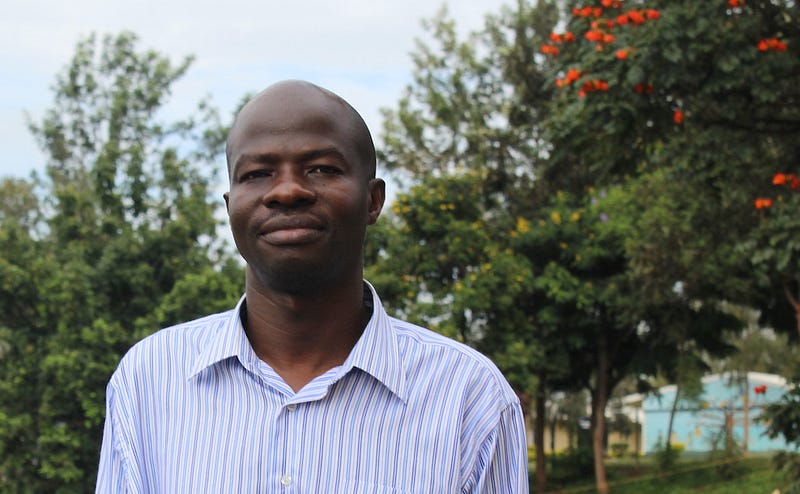Staff Spotlight: Paul Swaga, CORE Program Manager
Akilah prides itself on developing strong, skilled women leaders. But behind every great leader is a great teacher. In our “Staff Spotlight” series, we ask instructors and staff what inspires them about the work they do.

Paul teaches Akilah’s CORE program, which focuses on English language and leadership instruction. He explains why education for young women is a force for change and how its reshaping Rwanda.
Akilah’s mission to empower young women resonates with my feminist ideology. Did you know I am a feminist?
In my opinion, one of the reasons why Africa has been lagging behind for many years is that men have been too dominating, and women have been made voiceless. We need to give a lot of attention to the education of girls and women.
Educating young women is very powerful. It is transforming this country. Our students go out in society and act as change agents and inspire other women who didn’t have the same opportunities. We keep telling them that they must be ambassadors for change and narrow the gap between men and women. We want them to play their part in helping women become independent and able to sustain themselves without waiting for anyone else to do it.
One of the things that makes Akilah’s model unique is our style of teaching, which is built on collaborative learning. When I first joined Akilah, I was amazed to see students working in groups, discussing and presenting issues together. I was used to a different, traditional style, where the teacher is the one who provides the answers. I realized quickly that Akilah’s system facilitates much more active learning. I was impressed from day one.
Akilah’s CORE program contains our English and leadership components. The program is the glue that ties everything together. Students need to have good command of English so they can be competitive in their careers and work anywhere in the world. They need leadership skills so when they graduate they can take up leadership roles in their communities and careers. We reinforce the skills they get through their diploma programs.
The first thing we do in leadership class is to focus on their personalities. We make character assessments, so each student becomes aware of herself, her potential, her strengths, and her weaknesses. If you are not aware of your own character, you are not in a position to connect with others. We work with them to turn this knowledge and self-reflection into their biggest strengths.
We can see that our students are different from their peers outside Akilah. They graduate fluent in English. They are confident, professional, experienced, and proactive. You don’t have to push them along — they are equipped to take initiative.
They have developed strong critical thinking skills. This does not happen by default. It is a result of the curriculum they’re exposed to; a lot of tasks and projects challenge them to think critically and find solutions to complicated matters.
When I see students expressing themselves confidently in English and showing leadership and initiative, I get inspired to keep going. It’s a driving force for us all — it makes us excited to come back to the classroom. And we are all benefiting from it. I learn a lot from our students too — it doesn’t just go one way.
